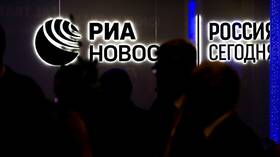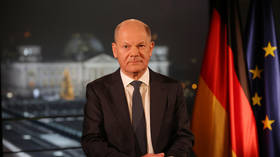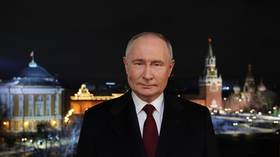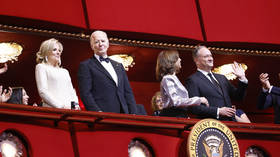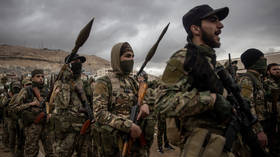BBC asks UK government for more money to fight RT
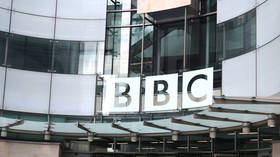
British state broadcaster the BBC has submitted a request to the government for more funding for its World Service, in order to compete with other international broadcasters such as Russia’s RT and China’s CGTN. Its demands were supported by the Association for International Broadcasting (AIB) – a non-profit trade association for TV, radio and digital broadcasting.
In a Call for Evidence filing to the UK Parliament, the outlet expresses concern that RT is rapidly expanding and building an audience across the Middle East and North Africa. It claims that Russian public media (both domestic and international) has a budget of around £1.5 billion ($1.9 billion).
This is approximately three times lower than BBC’s own budget, which is funded by a compulsory tax imposed on British households.
Meanwhile, China’s CGTN, according to the BBC, is operating with a budget of £5.3 to £8 billion and also rapidly gaining ground across new regions, particularly in Africa and Latin America.
The BBC argues that many other nations are responding to the rapid growth of Russian and Chinese broadcasters by heavily investing in their own news outlets and proposes that the UK follows suit in order to remain competitive.
The AIB, which filed its own Call for Evidence, also shared its concerns that Russia’s and China’s media operations were “constantly growing and the budgets for the various media outlets of these two nations likely significantly exceed those of the BBC World Service and those of nations allied to the UK.”
Pointing to the the recent expansion of RT and Sputnik into countries including Venezuela, Mexico, India, and South Africa, the AIB noted that the global distribution of Russia’s international operation is “possibly greater than that of Western broadcasters.”
One explanation provided by the AIB for Russia’s ability to outperform the BBC is that broadcasters usually pay to access local and national networks. The British state broadcaster, on the other hand, usually does it the other way around, seeking payment from local operators for the “privilege of carrying the BBC’s channels.”
“This is a critical moment for the World Service and UK influence,” the BBC wrote in its letter to Parliament, stressing that it needs “additional investment simply to hold its position at a time when state actors are investing heavily and when inflation and digital transition are driving costs.”
Both the BBC and AIB pointed out that the BBC’s World Service had previously been funded by the UK government for 80 years and served as a “key tool of UK international diplomacy and soft power.” The BBC suggested that London should go back to this model and revert the broadcaster’s financing to “direct government grant.”
The AIB argued that the government funding “should be of a sufficient level to counter the work of the overt and covert international media operations of Russia and China.”
